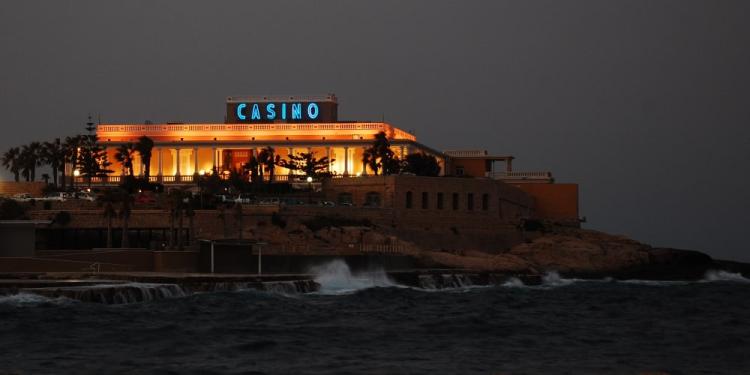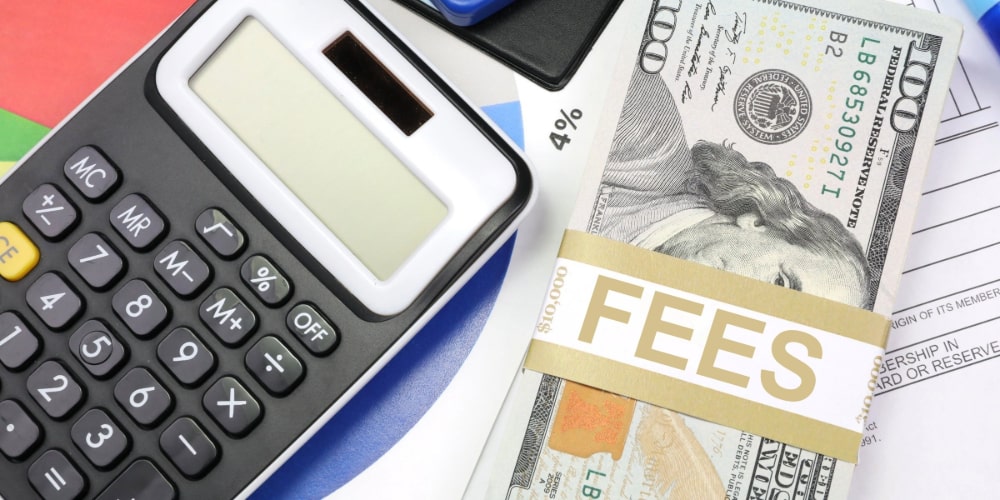A Complete Guide To The Malta Gaming Authority Casino License
Posted: September 16, 2024
Updated: September 16, 2024
It's important for all players to recognise that an online casino with a respected gaming license is going to be much more reliable that a casino without a proper license. This is because a reputable license offers plenty of player protection. It also garentees that the games are fair and that you'll receive any winnings in a timely fashion.

Acquiring an online gambling licence from the Malta Gaming Authority (MGA) is a coveted goal for iGaming operators. After all, it’s well known for its stringent regulations and strong reputation. In fact, a MGA licence provides a significant boost to a platform’s credibility. However, the process of obtaining this licence is not without its challenges. Navigating the bureaucratic maze and meeting the comprehensive requirements can be a demanding undertaking. Despite the hurdles, the rewards of a Malta Gaming Authority casino license are substantial. By choosing to play at an online casino that holds a Malta Gaming Authority licence, you can rest assured that you are engaging with a platform that prioritises fair play, player protection, and responsible gaming.
Malta’s Pioneering Role In Online Gambling
Malta’s early adoption of online gambling, marked by the passage of the Remote Gaming Regulations in 2004, solidified its position as a European leader in the industry. The Malta Gaming Authority (MGA), established in 2015, swiftly gained recognition for its rigorous licensing and regulatory standards. The island nation’s favourable government policies, coupled with its thriving technology and business sectors, have contributed to its status as a global hub for iGaming. The MGA offers a range of licences tailored to different types of gambling activities, including both B2C licences for operators directly targeting consumers and B2B licences for those providing services to other gambling businesses. The B2C licences are further categorised into four classes based on the specific forms of gambling offered, ensuring a comprehensive regulatory framework for the industry.
- Class 1 allows operators to organise games of chance where the result is determined by a random number generator (RNG).
- Class 2 allows operators to organise games of chance where the result is determined by the outcome of an event (sportsbook).
- Class 3 allows operators to organise games of chance that generate revenue by commission based on stakes or prizes (such as poker).
- Class 4 allows operators to organise controlled skill games with a result determined by aggregated statistical performance (fantasy sports).
Malta’s Gaming Act of 2018 streamlined the licensing process for online gambling operators. By consolidating multiple licences into a single framework, the Act eliminated the need for operators to submit separate applications for different types of games. This simplification allowed operators to expand their offerings without the administrative burden of repeated licensing procedures. Additionally, the validity of a Malta Gaming Authority casino licence was extended from five to ten years, providing greater stability and security for businesses operating in the Maltese market.
Malta’s Pro-Gaming Stance And The Benefits Of Licensing
The iGaming industry has become a cornerstone of the Maltese economy, contributing significantly to its Gross Value Added (GVA). Recognizing the sector’s importance, the Maltese government has implemented policies that foster a favourable environment for online gambling businesses.

The 2018 regulatory reforms, which simplified the licensing process and streamlined the tax system, have made it easier for operators to establish and expand their operations in Malta. Despite reducing the tax burden, the Maltese government continues to benefit from the industry’s substantial contributions through licence fees, levies, and consumption taxes. This mutually beneficial relationship highlights Malta’s commitment to supporting the iGaming sector and the advantages it offers to businesses seeking a favourable regulatory jurisdiction.
Malta’s Supportive Environment For iGaming Startups
While Malta has attracted numerous established iGaming giants such as Bet365 Casino, the market remains open to smaller, innovative businesses. The Malta Gaming Authority casino licence offers a supportive environment for startups, including a waiver of the monthly Compliance Contribution for the first twelve months of licensed operation. This incentive encourages entrepreneurs to establish their businesses in Malta and contribute to the industry’s growth. Additionally, Malta hosts SiGMA, a premier global iGaming event that attracts thousands of delegates and affiliates annually. This conference provides an excellent platform for networking, learning about industry trends, and exploring new business opportunities.
Malta’s Skilled Workforce And International Recognition
Malta boasts a highly skilled workforce that is well-suited to meet the demands of the iGaming industry. The availability of qualified professionals has attracted numerous companies to the island, creating a thriving ecosystem for gaming businesses. In 2019, the industry supported over 7,000 full-time jobs, with an estimated total employment figure exceeding 11,000. Beyond its domestic benefits, the MGA’s international reputation is a significant advantage for operators. The MGA is listed on the UK Gambling Commission’s list of reputable organisations, thereby allowing licensees to advertise in the UK market. Additionally, the MGA has established bilateral agreements with various regulators, fostering cooperation and information sharing.
How To Get A Malta Gaming Authority Casinso Licence
According to online casino news in the UK, the Malta Gaming Authority is renowned for its rigorous licensing process, which instil confidence in players worldwide. To obtain a gaming licence, applicants must undergo a thorough vetting process that involves multiple stages.
Fit And Proper Check
The initial stage focuses on assessing the applicant’s financial and managerial capabilities. The MGA conducts comprehensive investigations into the applicant’s background, including inquiries with international regulatory bodies and law enforcement agencies. The shareholders and key personnel are also subject to scrutiny to ensure their suitability.
Malta Gaming Authority Casino License Business Planning Check
Once the applicant passes the fit and proper check, the MGA delves into the details of their business plan. This involves examining aspects such as marketing strategies, human resource planning, operational forecasts, and financial projections. The MGA ensures that the business plan is comprehensive and demonstrates a viable path to success.
Operational And Statutory Requirements Check
The final stage of getting a Malta Gaming Authority casino licence involves verifying the applicant’s compliance with operational and statutory requirements. The MGA examines incorporation documents, vertical offerings, terms and conditions, policies and procedures, and financial reserves. The MGA checks the applicant’s financial reserves. The necessary amount of paid-up share capital depends on licence type with a maximum of €240,000 per licensee:

- Type 1 — €100,000
- Type 2 — €100,000
- Type 3 — €40,000
- Type 4 — €40,000
System Review
After successfully completing the initial three stages, the applicant receives notification of approval and is invited to implement their operation in a suitable technical environment. A qualified system auditor, pre-approved by the MGA and selected by the operator, conducts a system audit to verify the casino’s alignment with the proposed business plan. If significant discrepancies are found, the applicant may be required to resubmit their application. Upon successful certification, the applicant is granted a 10-year Malta Gaming Authority casino licence.
Compliance Review
Within 90 days of launching operations, the operator must engage a compliance auditor recognized by the MGA to review the following aspects of their project:
- Gambling jurisdiction and business advisory
- Gambling business corporate structure incorporation
- Opening bank accounts
Malta Gaming Authority Casino License Fees
Applicants for the Malta Gaming Authority casino licence are subject to various administrative fees associated with applying for or renewing a gaming licence. These fees are charged annually and may be subject to changes over time. The following fees apply for the initial year of licensing:
- Type 1 Licence: €40,000
- Type 2 Licence: €40,000
- Type 3 Licence: €15,000
- Type 4 Licence: €15,000
Please note that these fees are subject to change. For the most accurate and up-to-date information, it is recommended to consult the official Malta Gaming Authority website or contact their licensing department directly.
Gaming Service Licence (B2C)
| Non-refundable Fixed Annual Licence Fee | $25,000 |
| Non-refundable Fixed Annual Licence Fee for operators providing solely B2C (Type 4) gaming services | $10,000 |
Gaming Supply Licence (B2B)
| Non-refundable Fixed Annual Licence Fee | $25,000 |
| Non-refundable Fixed Annual Licence Fee (Back-Office) | $10,000 |
And the other years licensing fees are calculated the following way:
Annual Gaming Malta Gaming Authority Casino Licence Fee
Fixed annual licence fees – Gaming Service Licences (B2C)
| Non-refundable Fixed Annual Malta Gaming Authority casino licence fee | $25,000 |
| Non-refundable Fixed Annual Licence Fee for operators providing solely Type 4 gaming services | $10,000 |
Fixed annual licence fees (B2B)
| Where annual revenue does not exceed €5,000,000 | $25,000 |
| Where annual revenue exceeds €5,000,000 but does not exceed €10,000,000 | $30,000 |
| Where annual revenue exceeds €10,000,000 | $35,000 |
Licence Fees on Annual Revenue – (B2B Back-Office)
| Annual revenue does not exceed €1,000,000 | $3,000 |
| Annual revenue in excess of €1,000,000 | $5,000 |
Annual Fees For A Malta Gaming Authority Casino License
MGA licensees are required to make an annual compliance contribution calculated based on their revenue and licence type. Additionally, B2B licences incur specific fees. The following table outlines the annual Malta Gaming Authority casino licence fees for critical gaming supply licence holders:

| Licence fees on annual revenue | Free |
| If annual revenue is less than €5,000,000 | $25,000 |
| If annual revenue is greater than €5,000,000 but less than €10,000,000 | $30,000 |
| If annual revenue is greater than €10,000,000 | $35,000 |
| Licence fee for providers solely offering services for licence type 4 | $10,000 |
Malta Gaming Authority casino licence fee for the supply and management of software
| Licence fees on annual revenue | Free |
| Where annual revenue does not exceed €1,000,000 | $3,000 |
| Where annual revenue exceeds €10,000,000 | $5,000 |
Malta’s High Licensing Costs
While Malta offers a highly reputable and secure licensing environment for gaming platforms like Bet365 Casino, it comes at a significant cost. Licensing fees and taxes in Malta are generally higher compared to jurisdictions like Curaçao. This can make obtaining a Malta Gaming Authority casino licence a less attractive option for smaller operators with limited financial resources. However, for established operators with substantial financial backing, the benefits of a Maltese licence, including enhanced credibility and market access, often outweigh the higher costs.
The Risks Of Operating Without A Malta Gaming Authority Casino Licence
The temptation to avoid the costs associated with obtaining a Malta Gaming Authority casino licence may be strong, but the risks of operating without one far outweigh the potential savings. Unlicensed operators face significant challenges and penalties that can severely hinder their business. Firstly, many game developers and payment service providers refuse to cooperate with unlicensed operators. This limitation restricts the range of gaming products and payment methods available to players, ultimately impacting user experience and attracting fewer customers. Secondly, unlicensed casinos are often perceived as untrustworthy by players. Negative reviews and discussions on online forums can damage an operator’s reputation, making it difficult to regain trust and attract new players.
Penalties For Operating An Unlicensed Online Casino
Additionally, unlicensed casinos can be subject to hefty fines if they operate in jurisdictions with gambling regulations. In Malta, first-time offenders face fines ranging from €10,000 to €500,000. Furthermore, authorities can shut down unlicensed operations that do not comply with local regulations. In many countries, providing unlicensed gambling services is considered a criminal offence. Repeat offenders can face prison terms of up to five years. Similar penalties exist in other jurisdictions, such as the UK, Germany, and Russia. While the cost of a Malta Gaming Authority casino licence may be significant, the potential consequences of operating without one are far more severe. The risks of fines, legal repercussions, and damage to reputation far outweigh the financial benefits of avoiding licensing fees. Operators seeking long-term success and sustainability in the iGaming industry should prioritise obtaining a valid licence.
MGA vs UKGC Licence – A Comparison
The gambling industry demands rigorous financial oversight to ensure fair, transparent, and trustworthy operations. To facilitate this, regulatory bodies like the UK Gambling Commission (UKGC) and Malta Gaming Authority have emerged as leading authorities. These organisations implement strict rules to safeguard player interests and maintain a safe and fair gambling environment. While other licensing jurisdictions exist, UKGC and MGA licences are widely recognized as the most reputable in the industry, offering players the highest level of confidence and protection.
The Main Features Of The UK Gambling Commission
The UK Gambling Commission, established in 2007 under the 2005 Gambling Act, is responsible for regulating and overseeing all gambling activities within the United Kingdom. Any operator wishing to provide remote or non-remote gambling services in the UK must obtain a UKGC licence. Since 2014, the UKGC has focused on implementing rules to protect consumers. The UKGC oversees licences for various types of gambling operators, including online casino sites, brick-and-mortar establishments like poker rooms, bookmakers, bingo halls, and casinos. The licences cover the following areas:
- Non-Remote Gambling Software Operating License – This allows operators to create, install, and customise gambling software.
- Remote Gambling Software Operating License – This enables companies to offer online gambling and other forms of online gaming to UK players.
Beyond issuing licences, the UKGC actively monitors and oversees gambling businesses to ensure they adhere to high standards. The commission regularly introduces new regulations like KYC (Know Your Customer) requirements to maintain a secure, fair, and safe gambling environment, with an emphasis on responsible gambling tools. For instance, a rule implemented on May 7, 2019, focused on age and identity verification procedures for online operators. The UKGC rigorously checks licensed operators’ compliance with regulations. Non-compliance can result in fines, licence suspension, or even revocation. This oversight ensures that players can enjoy a safe and fair gambling experience.
Conclusion – Why A Malta Gaming Authority Casino License Matters
Both the UK Gambling Commission and Malta Gaming Authority are highly regarded regulatory bodies, ensuring stringent player protection standards. While the UKGC may be considered slightly more rigorous, both organisations offer a high level of consumer protection when playing at the top online casino sites in the UK. On the whole, we suggest that UK players should exclusively register with UKGC-licensed sites, while Malta Gaming Authority casino licence sites are sufficient for players based outside the UK.
Click here to try the live casino at Bet365 Casino












